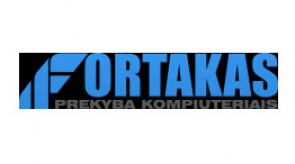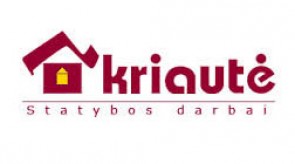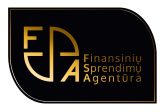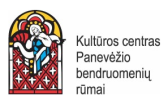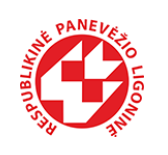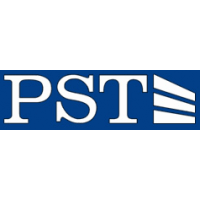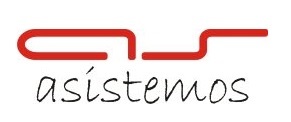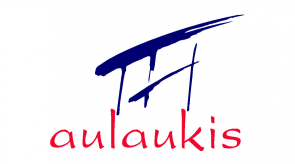Law
 Study mode and duration: part – time (4 years). Admission is for part-time study.
Study mode and duration: part – time (4 years). Admission is for part-time study.
Study programme is carried out: Panevėžio kolegija/State Higher Education Institution, Faculty of Social Sciences
Degree and professional qualification: professional bachelor of Law
Volume of study programme in credits: 180 ECTS credits.
Career opportunities: This is a universal study program, with wide applicability, the study program is focused on the needs of the labor market. The basis of the program (80%) consists of modules, the study results of which purposefully allow the acquisition of certain legal competencies. After completing the program, a person can work as a lawyer in all institutions providing legal services: notary offices, courts, attorneys’ offices, bailiffs’ offices, the police, other institutions, companies and organizations, and provide services individually.
Please check Rules for Admission for foreigners
| General Modules or Subjects of college studies |
|---|
| Module: Improvement of General Competences (Academic and Professional Language, Professional Foreign Language, Safe Work and Civil Safety) |
| Modules or Subjects of Study Field |
| Module: Paradigm of law (Theory of Law, History of Law) |
| Module: Law Research (Legal Research Methodology, Logic, Law and Artificial Intelligence, Legal Information Management) |
| Module: Constitutional Law (Constitutional Law, Protection of Human Rights and Globalism |
| Module: Administrative and Administrative Procedure Law (Administrative Law, Administrative Procedure Law) |
| Optional Subjects and Set by the College* |
| Optional subject 1* |
| Practices |
| Cognitive practice |
| Modules or Subjects of Study Field |
|---|
| Module: Civil Law (Civil Law. General, Law of Obligations, Family and Inheritance Law, Coursework) |
| Module: Criminal and Criminal Procedure Law (Criminal Law, Criminal Procedure Law) |
| Module: Law Enforcement Authorities (Law Enforcement Institutions. International Cooperation, Professional ethics of a lawyer) |
| Labour law |
| Module: Legal Communication (Legal Psychology, Human Resource Management in Legal Institutions. Leadership, Legal Rhetoric) |
| Civil Process Law |
| Enforcement Process |
| Finance and taxes Law |
| Practices |
| Law Enforcement Activities |
| Modules or Subjects of Study Field |
|---|
| Module: A1. Pre-trial process (Pre-trial investigation, Criminalistics, Term project) |
| Module: A2. Preparation and management of legal documents (Preparation and management of procedural documents, Data protection, Term project) |
| Module International Law (Public International Law, Private International Law, European Union Law) |
| Optional Subjects and Set by the College* |
| Optional subject 2* |
| Practices |
| Specialization practice |
| Final Practice |
| Final work |
*Optional subjects to choose from: Proposed Corruption Prevention, Criminal Intelligence, Intellectual Property Protection.
Specializations:
A1. Pre-trial proceedings (Pre-trial investigation, Criminalistics, Specialization practice, Term project)
A2. Preparation and management of legal documents (Preparation and management of procedural documents, Data protection, Specialization practice, Term project)
Attention to practice: Practical skills are being improved by students during practice in a real environment. Extensive cooperation with social partners enabling to state that the study programme is competitive, necessary and of wide application. Law studies are oriented towards the needs of the labour market; coupling between theory and practice is evident. Quality studies granted by the partnership of active and initiative students and lecturers with extensive educational competence.
Opportunities for international studies:
Students of the programme have the opportunity to study according to the ERASMUS student exchange program.
Distinctive features studies:
It is universal study program which is widely applicable and oriented to labour market needs. The basis of the program (80%) consists of modules. The study results of these modules allow the acquisition of certain legal competencies. After graduating the individuals can work as lawyers in all institutions providing law services: Notary Public Bureaus, Courts, Law firms, Court Bailiff bureaus, Police, other institutions, companies, organizations or individual can deliver services individually.
Objective(s) of a study programme:
To prepare creatively and critically thinking law specialists who would know the Lithuanian legal system and would gain knowledge of international law. Specialists would be able to analyze, evaluate and correctly apply legal norms in solving practical problems and who would be able to work independently in various fields of professional activity.
Learning outcomes:
- Knows the principles of national constitutional and ordinary law, Lithuanian legal system, norms of international public or private European Union law and applies the acquired knowledge in professional activities while solving specific legal problems.
- Able to perform analysis of the problems, scientific-empirical research in formulating research goals and objectives, analyzing data and drawing conclusions. Ability to collect information from various sources and analyze it using modern information technologies and databases.
- Able to analyze various legal documents and assess their period of validity, asess the territory of validity and validity for individuals, as well as to identify the specific legal rules governing the activities of individuals. Ability to represent individuals in accordance with the requirements of professional ethics and appropriate treatment of confidential information, using internal and environmental resources.
- Able to critically evaluate their own and other activities, knowledge and values. Able to use the language in which studies are conducted orally and in writing, to express one’s thoughts fluently in it. Able to communicate and collaborate effectively with professionals in their field and others. Able to impartially solve practical problems.
- Able to learn independently in their field of activity, choosing the direction of improvement. Able to create new ideas in practice, adapt to innovations and changing conditions. Able to plan their time and organize their activities. Willing to assume general ethical obligations related to honesty and duty.
Activities of teaching and learning:
Lectures, seminars, practicums, discussions, analysis of legal acts, analysis of court practice, simulation, brainstorming, case and situation analysis (problem solving), independent work (information search and analysis, reflection, activity analysis, data analysis), legal processes monitoring and discussion, educational games, group work, projects, preparation of draft documents, working with texts.


